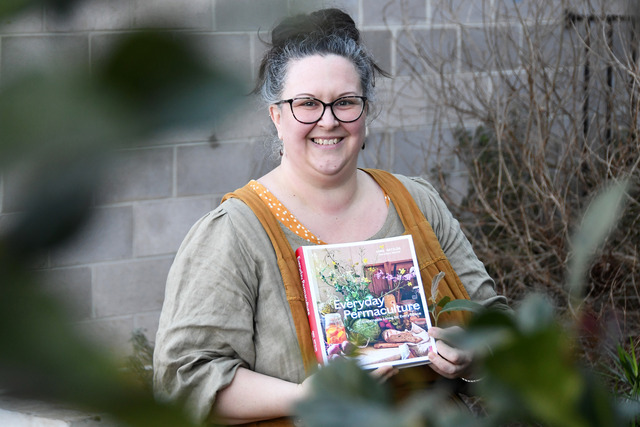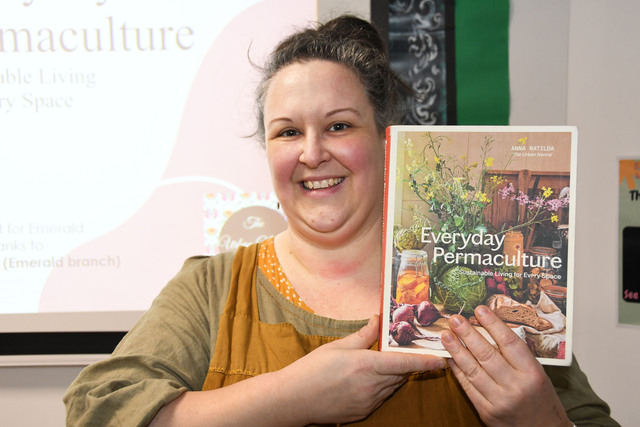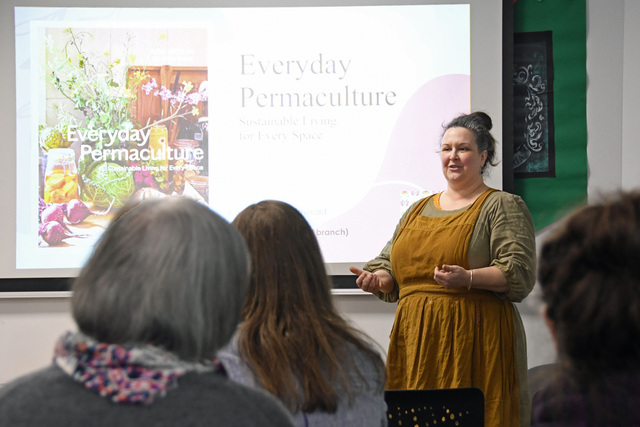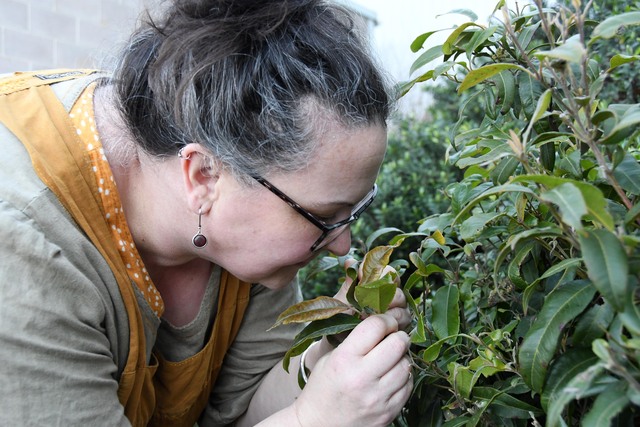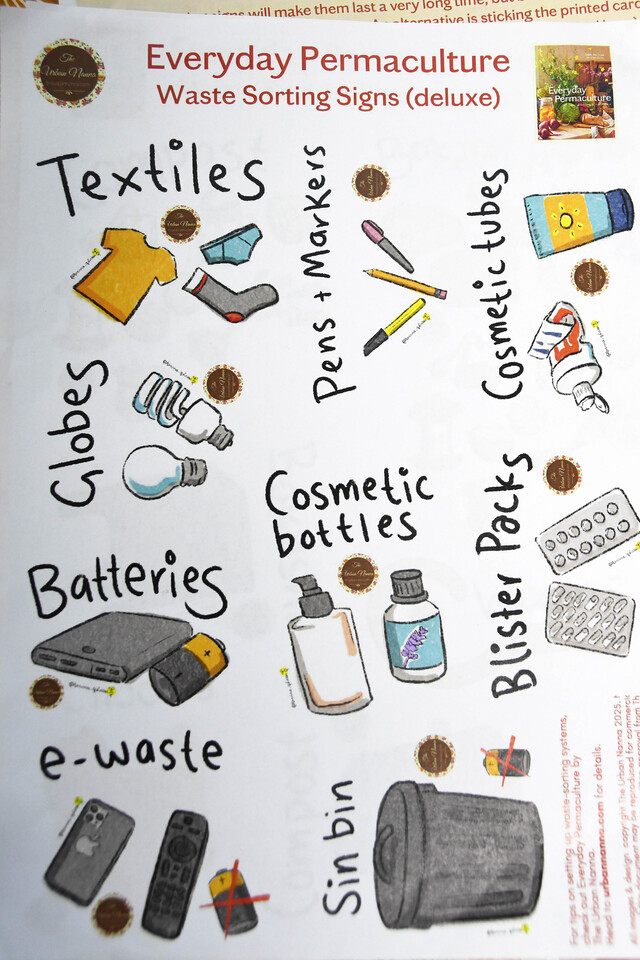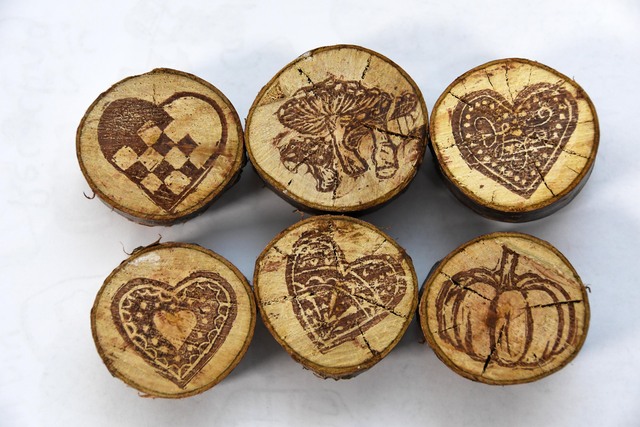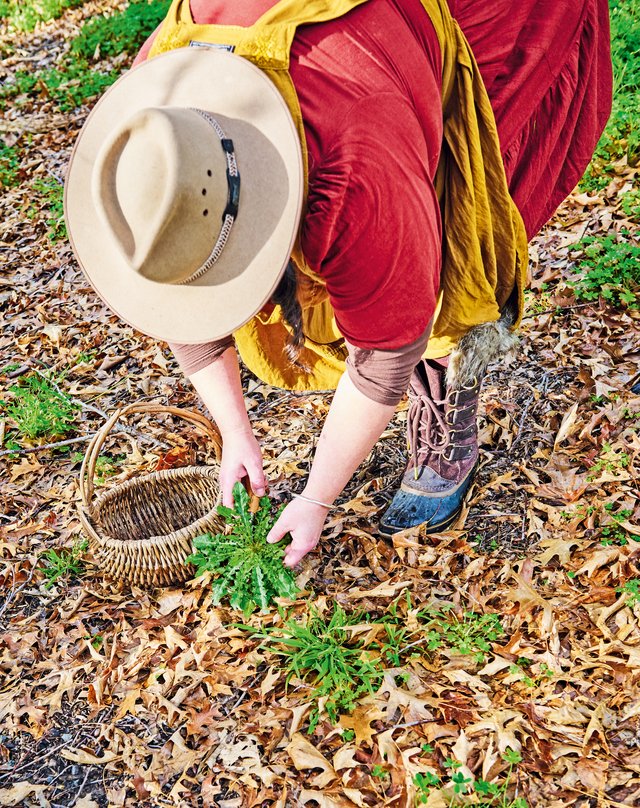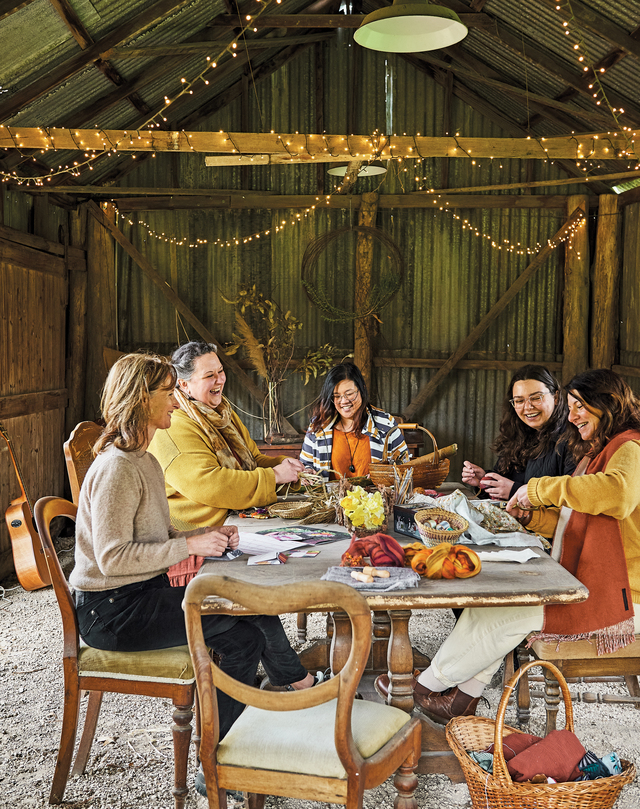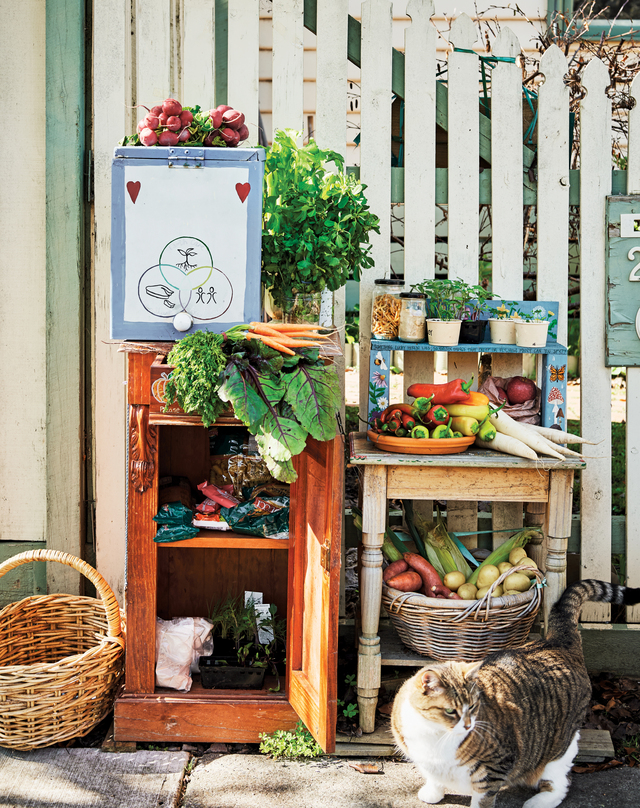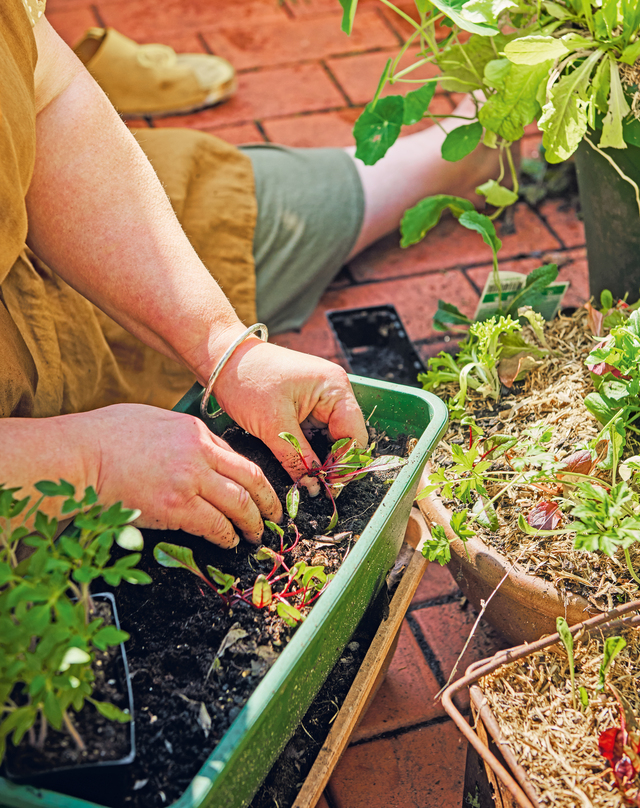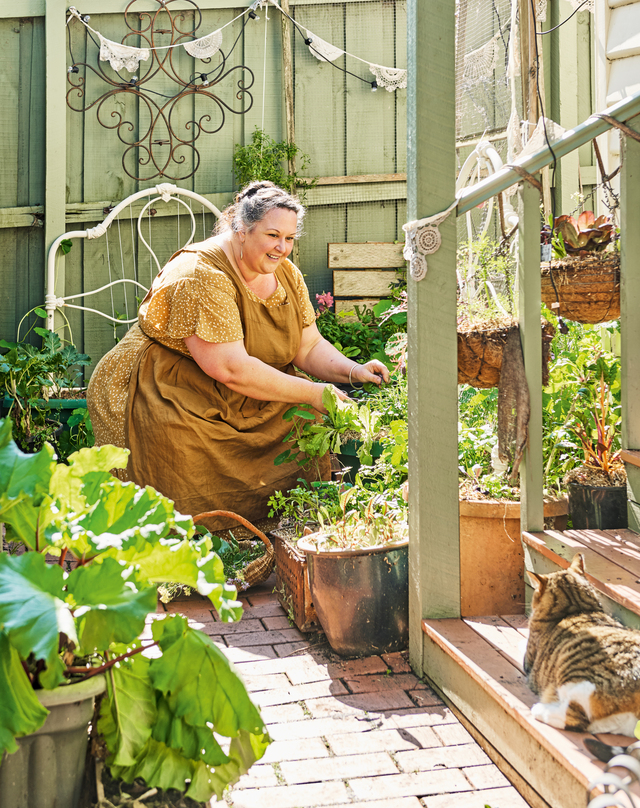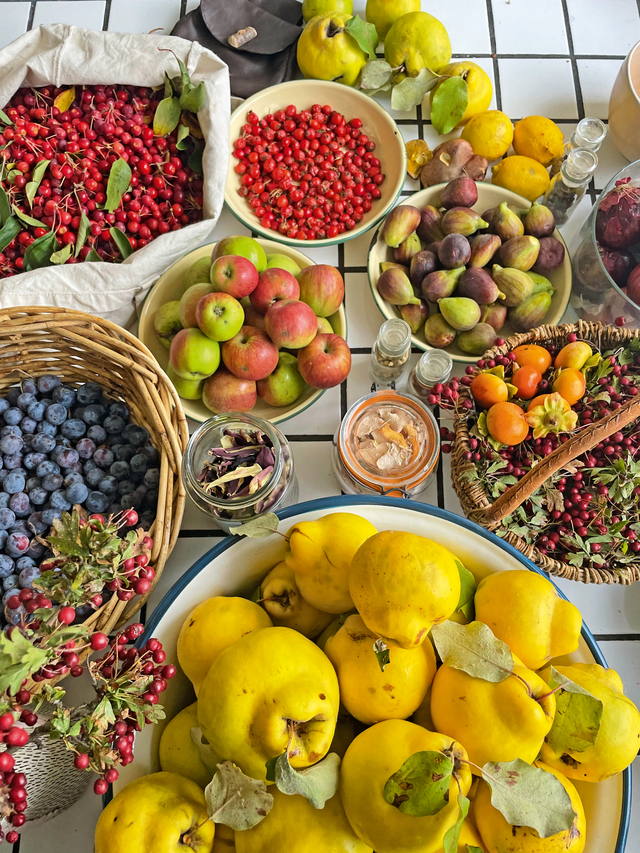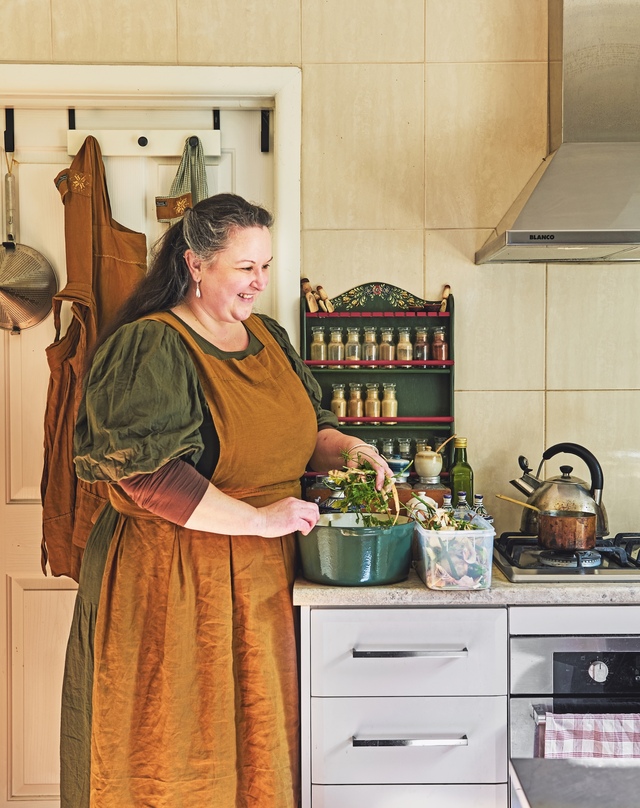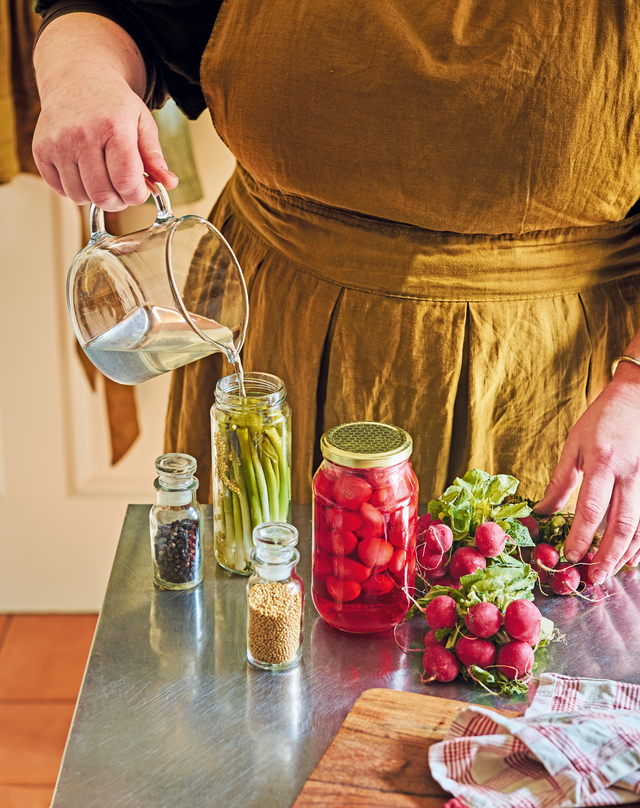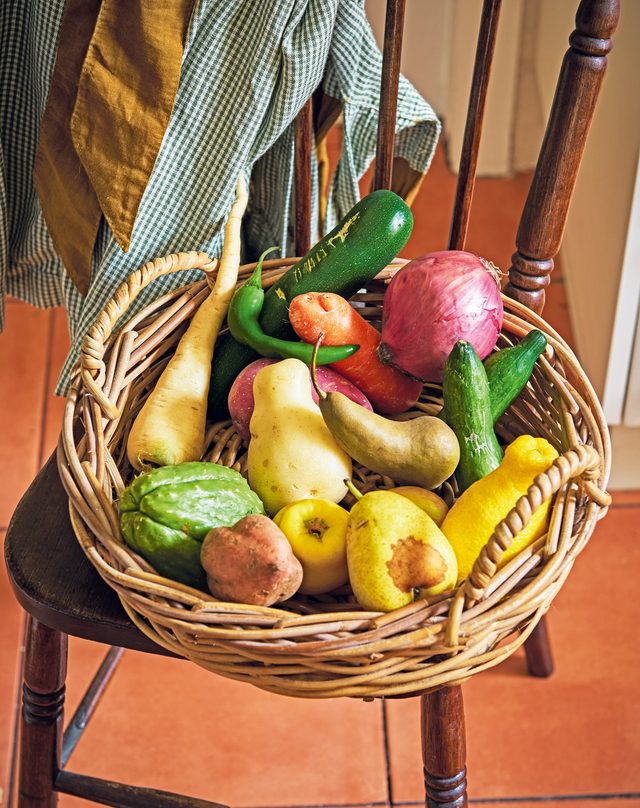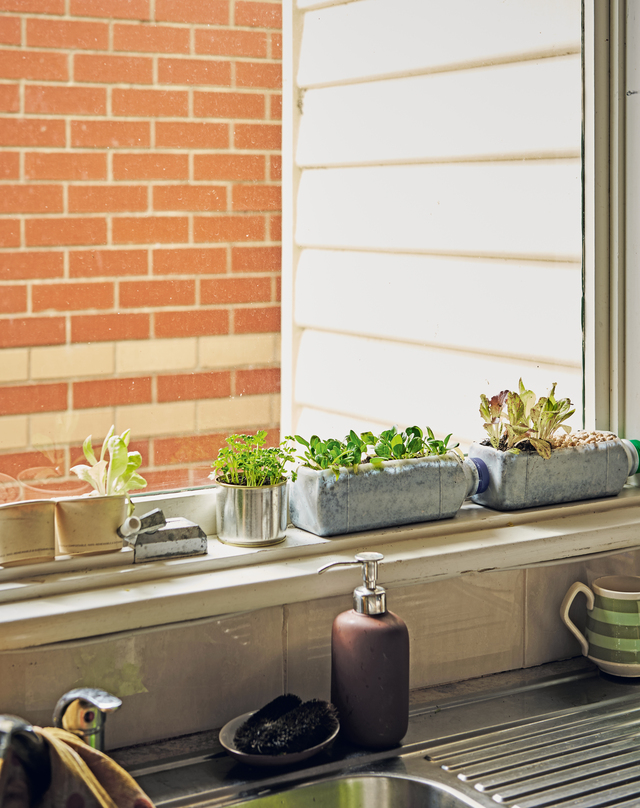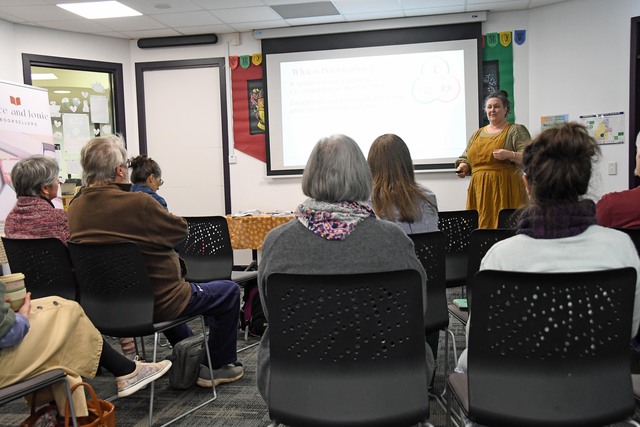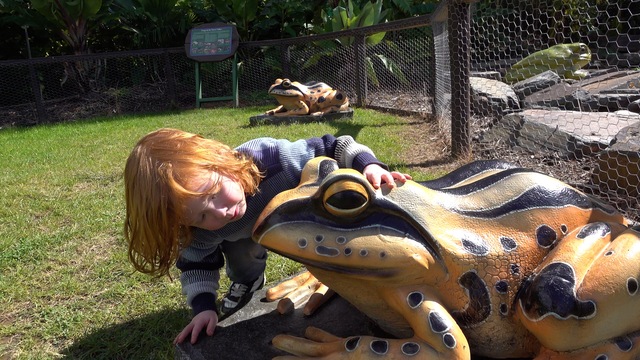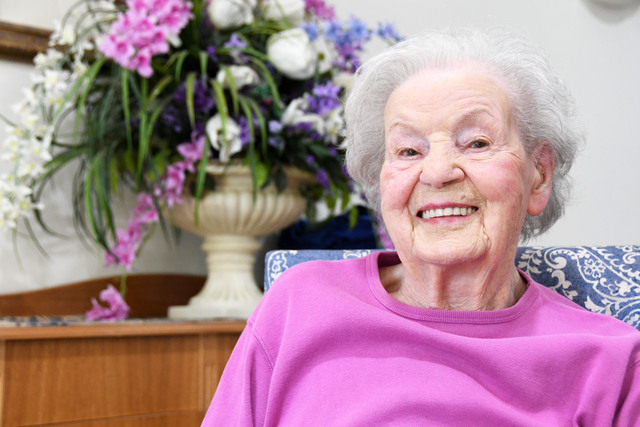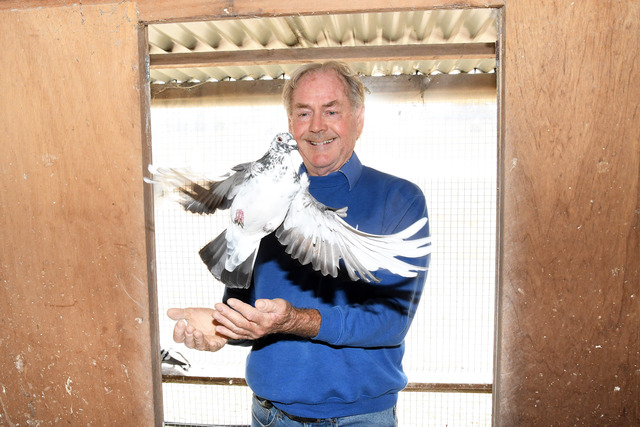PRECEDE: In a world that often feels fast and overwhelming, Matilda has found clarity in the rhythms of nature. Through permaculture, she’s discovering how small, thoughtful actions can create lasting change—for both local community and the planet. Gazette journalist Afraa Kori reports.
BREAKOUT QUOTE: “You don’t need a composting toilet and a goat to ‘do permaculture’ – as Arthur Ashe said ‘start where you are. Use what you have. Do what you can’.”
The Urban Nanna’s attraction to permaculture began after she left her teaching career.
Being Swedish, autistic, and having been raised with arts, science and practicality as core understandings, there was something about the fairness and balance that permaculture encourages which made her feel safe, capable and encouraged.
“Realising that the patterns of society mirror the patterns of nature has allowed me to understand social interactions more clearly,” she said.
A key turning point came during a visit to Melliodora, the homestead of permaculture co-originator David Holmgren.
“Seeing a gloriously imperfect, messy, abundant homestead encouraged me to slow down and just take things as they come,” she recalls.
“I have learnt so much about so many things, just from conversations around someone’s kitchen table, or as we pull weeds together, or go on a foraging wander.”
But the journey hasn’t always been easy. Urban Nanna has moved 12 times in the past 20 years, and the constant upheaval took a toll on her wellbeing.
“The feeling of displacement, disjointedness, isolation and loneliness affected my mental health immensely, and both anxiety and depression have been frequent housemates,” she said.
“Building community has been by far the most powerful act in my mental health toolkit to combat this, as it makes me feel seen, valued, cared-for and supported in ways that you couldn’t even pay for if you tried.”
Stepping into the role of The Urban Nanna gave Matilda the freedom to fully embrace her identity and connect with people in new ways.
“It has allowed me to mask my autistic behaviours less, which in turn has helped me connect to many other neurodiverse people more meaningfully and usefully,” she explains.
The Urban Nanna persona, she says, is gentle, kind, and endlessly encouraging.
“She’ll never get cross at mistakes, and she’ll make sure you cut yourself some slack too.”
When it comes to sustainable living or growing, The Urban Nanna says the biggest mistake people make is trying to do everything at once.
“We live in a deeply flawed system, with a food supply chain and climate that is seriously struggling,” she explains.
“Often the reason big sustainable change doesn’t happen more widely is because it’s harder than the status quo. It’s often more expensive, less convenient, yields are smaller and less standardised.”
Her advice? Think like a tree.
“Apples take years to get from seed to fruit, and whilst it can feel frustratingly slow to watch, there’s an elegant beauty to how each plant grows steadily, systematically towards it’s goal.
“If we can all learn to think like trees a bit more, and just keep growing bit by bit towards sustainable living, the eventual yield will be so much stronger and abundant than if we try to rush and do it all at once.”
When six different publishers approached her within months of each other, asking if she would write a book, Urban Nanna knew there was a growing hunger for practical sustainability advice.
Everyday Permaculture is her first international book, now available in Australia, New Zealand, the UK, Ireland, Canada and the US.
The book grew from her personal experience living sustainably in rental homes, demonstrating that eco-conscious living isn’t limited to homeowners or large spaces.
“I want readers to feel like they have a kind, caring Nanna by their side as they try out different ideas to see what works best in their lives,” she said
The book is rooted in Urban Nanna’s own lifestyle as a single person managing work, household responsibilities, and limited energy. Every tip is tried-and-tested, practical, and designed to fit into everyday life.
Among her favourite chapters include:
Foraging: Two years of seasonal plant identification guides, paired with adaptable recipes and rich, accessible photography.
Food: Practical, inclusive tips for minimizing waste and making the most of what you have.
Moving: A fresh take on a common life challenge, offering sustainable solutions to what is usually a stressful, wasteful process—drawn from Anna’s personal experience of moving multiple times.
The book has been warmly received. It has topped Amazon bestseller lists, sold out in stores, and garnered praise from renters, as well as neurodiverse, disabled, and chronically ill readers.
“There are so many great permaculture books and courses out there,” Urban Nanna said.
“But historically, none of them presented explicit directions on how to incorporate sustainable principles and practices into an impermanent living system.”
One of Urban Nanna’s key messages is that sustainable change works best when it starts small.
Practical tips readers can try immediately include:
Scraptastic cooking: Making the most of all parts of vegetables and fruits, from homemade stock to ‘scrap-chi,’ a kimchi-style dish using fridge leftovers.
Energy efficiency: Simple behavioural tweaks, like adjusting venetian blinds to control indoor temperature or using ceiling fans’ winter mode to circulate warm air.
Food waste reduction: Source, store, and preserve food thoughtfully to lower your carbon footprint.
Beyond the book, Urban Nanna shares her philosophy across countless platforms—monthly radio segments, TV appearances, podcasts, workshops and sustainability festivals.
Locally, residents recently had the chance to hear her speak at the Emerald Library on August 8, where she delivered an author talk that drew a packed crowd.
Anna Read, MYLI Program Officer, who facilitated the event, said it was a pleasure to host The Urban Nanna.
“She walked us through each chapter, sharing practical tips for living more sustainably, even if you are renting. Her advice to start small really resonated with the group,” Read said.
“We cannot wait to welcome The Urban Nanna back to the library for another in-depth conversation about permaculture soon.”
The author talk at Emerald Library is part of a broader series of presentations and workshops The Urban Nanna delivers across Victoria, most of them hosted by libraries and councils.
“Many libraries have been requesting an author talk on Everyday Permaculture, because it has been so popular on their borrowing lists (over 50 borrowers on wait-lists at some branches!), and there are several booked this year.”
The year ahead is busy, with Urban Nanna working on new media projects with BBC4 in UK, preparing a regular column for a major Australian publication, and appearing at the Zero Waste Festival, Kingston’s Food Feastival, and the Canberra Writers Festival.
But no matter how far her influence spreads, The Urban Nanna remains grounded in her philosophy: start small, be kind, and take things one step at a time.
“You don’t need a composting toilet and a goat to ‘do permaculture’ – as Arthur Ashe said ‘start where you are. Use what you have. Do what you can’.”
Photo credit Anna Matilda and Stewart Chambers.

